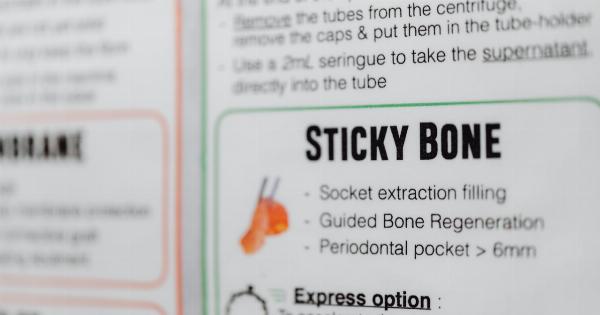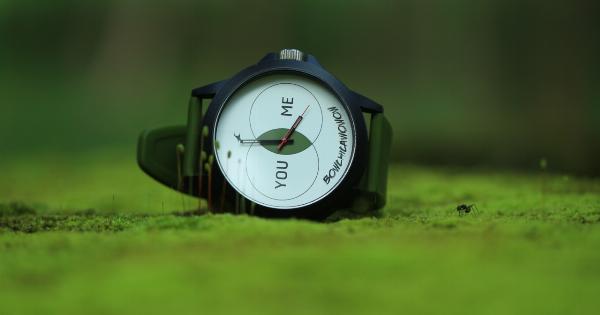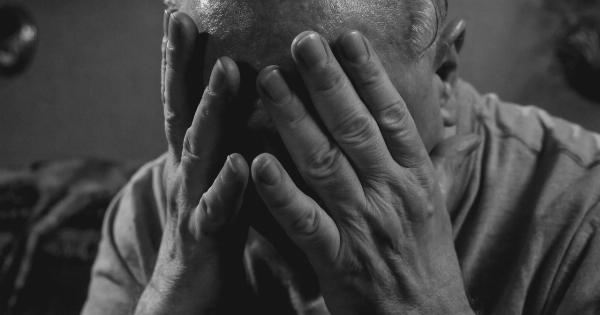Male anorgasmia, also known as delayed ejaculation or retarded ejaculation, is a sexual dysfunction characterized by the inability to achieve orgasm despite normal sexual stimulation and desire.
It is a relatively uncommon condition that can have significant psychological and emotional consequences for affected individuals and their partners. Understanding the causes, diagnosis, and management of male anorgasmia is crucial in order to provide effective treatment options and improve sexual satisfaction.
Causes of Male Anorgasmia
Male anorgasmia can have both physical and psychological causes, and it is often a combination of both. Some possible underlying factors include:.
- Medications: Certain medications, such as selective serotonin reuptake inhibitors (SSRIs) used to treat depression, can interfere with the orgasmic response.
- Neurological Disorders: Conditions like multiple sclerosis, spinal cord injuries, and diabetic neuropathy can disrupt the nerve signals required for orgasm.
- Hormonal Imbalances: Low testosterone levels or imbalances of other hormones involved in sexual function can contribute to anorgasmia.
- Psychological Factors: Stress, anxiety, depression, relationship issues, and past traumas can all affect sexual function and lead to anorgasmia.
Diagnosis of Male Anorgasmia
Diagnosing male anorgasmia typically begins with a thorough medical history and physical examination to identify any potential physical or psychological causes. Additionally, healthcare professionals may perform the following:.
- Semen Analysis: A semen analysis helps determine if any underlying physical issues, such as retrograde ejaculation, are contributing to anorgasmia.
- Neurological Examinations: Assessing nerve function through various tests can identify any neurological problems that may be causing anorgasmia.
- Hormonal Tests: Blood tests to measure hormone levels, including testosterone, can identify any imbalances that may be affecting sexual function.
- Psychological Evaluation: A psychological evaluation may involve questionnaires or interviews to assess mental health and any psychological factors contributing to anorgasmia.
Management of Male Anorgasmia
Effective management of male anorgasmia depends on the identified causes and may involve a combination of medical, psychological, and lifestyle interventions. Some possible treatment options include:.
- Medication Adjustment: Switching medications or adjusting dosages, particularly in the case of SSRIs or other medications that may interfere with orgasm, can alleviate anorgasmia.
- Hormone Therapy: In cases of hormonal imbalances, hormone replacement therapy may be prescribed to restore proper hormone levels and improve sexual function.
- Psychotherapy: Cognitive-behavioral therapy, sex therapy, or couples therapy can help address psychological factors contributing to anorgasmia and develop coping strategies.
- Sensate Focus and Masturbation Exercises: These techniques involve gradually desensitizing the body to different levels of sexual stimulation to improve orgasmic response.
- Sexual Counseling and Education: Providing information about sexual anatomy, physiology, and techniques can help individuals and couples explore new ways to enhance sexual pleasure and achieve orgasm.
Living with Male Anorgasmia
Living with male anorgasmia can be challenging, but it’s important to remember that the condition is treatable.
Open communication with a healthcare professional, maintaining a supportive relationship with a partner, and exploring alternative sexual activities can significantly improve sexual satisfaction and overall well-being. Patience, understanding, and a willingness to experiment with different techniques and treatments are often key to managing male anorgasmia successfully.





























